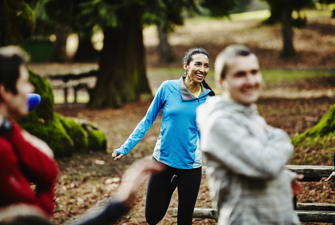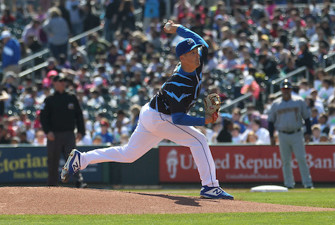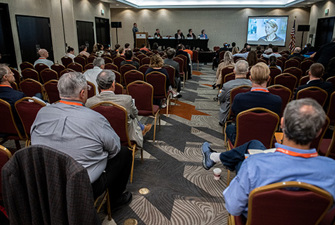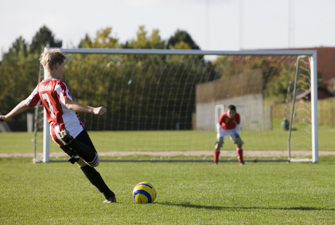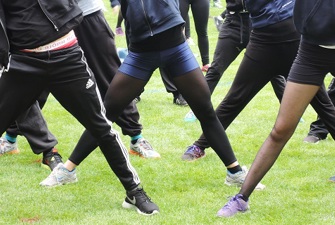Levels of sports participation in Europe are declining
While 40% of Europeans exercise at least once a week, the number of citizens that never exercise is increasing, new numbers from Eurobarometer show.
The number of Europeans that never exercise or play sports has increased from 42% in 2013 to 46%, say the latest findings from the Eurobarometer on sport and physical activity in EU member countries. The findings were presented this week in Sofia, Bulgaria, during the annual EU Sport Forum.
The results also show that a majority of those who exercise do it in informal settings such as parts and outdoors (40%), at home (32%) or on the way between work/school/shopping and home (23%).
Among the younger population, aged 15-24, however, there is a higher proportion that that use the more formal settings like a heath or fitness centre or a sports club than among those aged 55 or over (22% against 10%). The numbers further show that the longer time people have spent in education, the more likely they are to exercise in a formal setting. The observations regarding the setting of the physical exercise is similar to the ones observed in 2013 except for a small increase in the percentage of people using sport centres (+4pp).
European men exercise more than women
In general, European women exercise less than European men (36% for women exercise regularly while 44% of men do). The percentage of women who never exercise is 52% compared to 40% for men, the survey that includes around 28,000 respondents from 28 EU members countries shows.
The biggest gender difference in the level of physical activity is found in the younger age group (15-24-year-olds) where double as many women (33%) say they never exercise compared with men in the same age group (15%). The findings also show that the frequency of exercise decreases with age. There are large differences among the countries included in the survey, but there is a tendency for the Northern part of the EU to be more physically active than the Southern. This could reflect a lover prevalence of facilities and infrastructure to support physical activity, the report suggests.
Among the conclusions the EU draws on the results is that more could be done to inform people about the many various types of voluntary jobs supporting sports activities. Only 6% of respondents indicate that they engage in voluntary work within sport. It is also concluded that promoting possibilities to engage in physical activity outside of organised settings could be helpful in raising participation rates among people with financial difficulties for whom entrance fees in clubs and centres can be a barrier.
Continuing efforts, results yet to be seen
During the ‘European Week of Sport’, held in September last year, EU Commissioners for Education, Culture, Youth & Sport, Health & Food Safety and Agriculture & Rural Development agreed on strengthening coordination across the different policy areas with a view to “address the societal, health and economic challenges of unhealthy lifestyles, in particular physical inactivity”, said a call issued on the occasion
.
The declining levels of participation in sports could be a sign that messages about the importance of physical activity has yet to reach “significant segments of the EU population”, concludes the summary of the 2017 Eurobarometer on sport and physical activity.
"The new figures show how vitally important it is to continue our efforts to promote physical activity and healthy lifestyles. I strongly encourage all actors, from public authorities to sports organisations, to intensify their efforts and work together," said EU Commissioner for Education, Culture, Youth & Sport, Tibor Navracsics, according to a press release form the EU about the new numbers.

